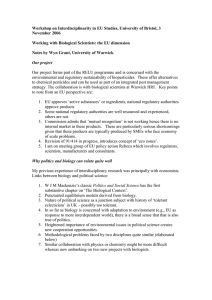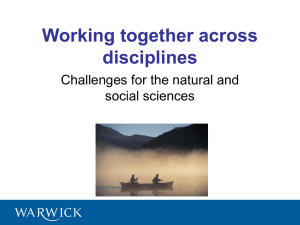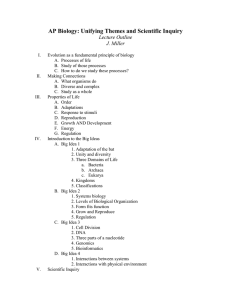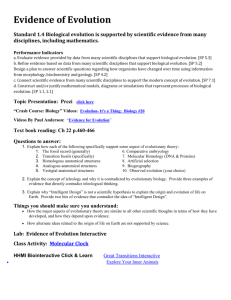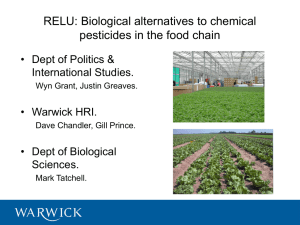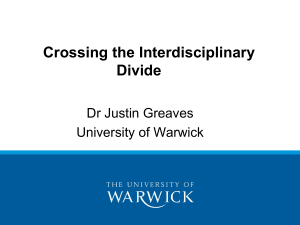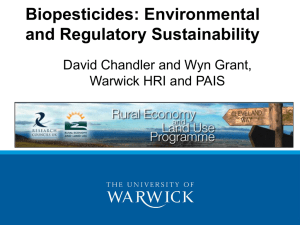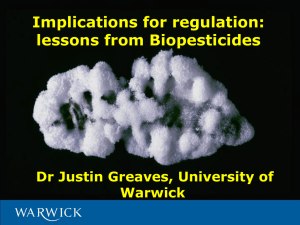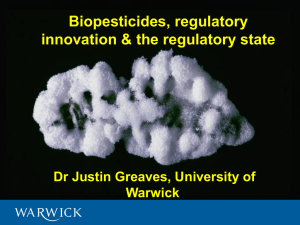bristolprez
advertisement
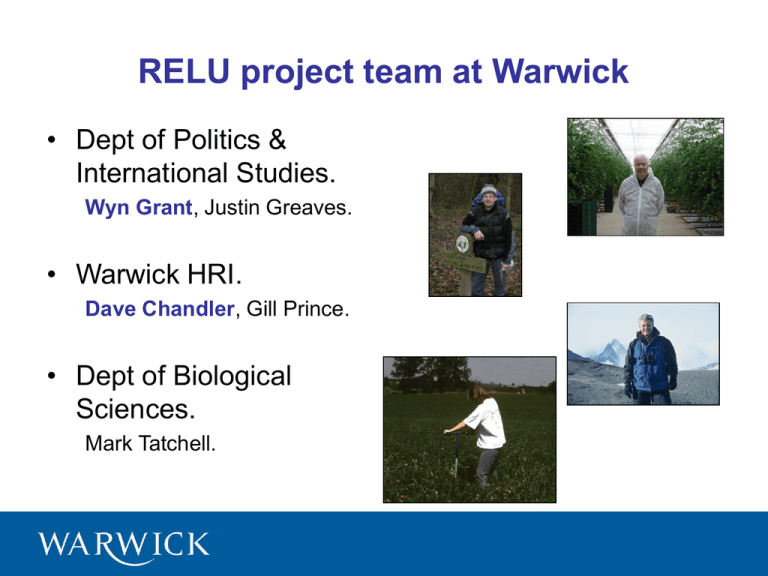
RELU project team at Warwick • Dept of Politics & International Studies. Wyn Grant, Justin Greaves. • Warwick HRI. Dave Chandler, Gill Prince. • Dept of Biological Sciences. Mark Tatchell. 1 Why are biopesticides useful? • Often v. specific. – ‘inherently less toxic than conventional pesticides’ (EPA). • Compatible with other control agents. • Little or no residue. • Inexpensive to develop. • Natural enemies used in ecologically-based IPM. • Social benefits. 2 In the EU, microbes & biochemicals are registered as plant protection products • National authorisations (PSD). • Harmonisation of arrangements: – Directive 91/414 – Active substances added to Annex I (existing & new substances). – Mutual recognition. – Tailored requirements for biopesticides. 3 Mutual recognition (EU) • Commission admits this is not working. • We are supposed to have an internal market. • Would help to overcome problem of small market size. • Need to support 91/414 revision that creates three ‘eco zones’ within EU. • ‘Rebeca’ policy action 4 Why political science and biology can relate well • Mackenzie’s Politics and Social Science has first main chapter on biological context • Punctuated equilibrium models • Nature of political science as a junction subject, ‘tolerant eclecticism’ • Biology concerned with adaptation to environment, also true of politics – EU and more interdependent world 5 More reasons for good relationship • Heightened importance of environmental problems creates new cooperation opportunities • Similar methodological challenges • Collaboration with physics or chemistry might be more difficult 6 How we started work • Concerns by biologists about partisanship, in both disciplines real differences between schools and disciplines • Read and presented articles from each other’s disciplines • Political science articles discursive 7 Shared methodological issues • Categorisation issues – ‘lumpers’ and ‘splitters’ in biology • Individualistic fallacy and ecological fallacy, although in biology individualistic fallacy overcome by data aggregation and mathematical models • Molecular genetics led to ‘bottom up’ science, failure to address big questions, also EU studies? 8 Methodological challenges • Replicated, controlled experiments in biology, model plant (Arabidopis thlania), no model citizen • Protocols in science less flexible than semi-structured interviewing, also rhythms of planting, growing and harvesting • Both disciplines use the comparative method 9 What each side gains • Scientific research poses questions for regulators, e.g., species identity • Need scientific knowledge to participate in highly technical regulatory debate • Scientists had considerable knowledge of policy networks and decision-making processes, not placed in any systematic framework 10 More gains • Biologists state that they have gained from more theoretical approach of political science, in applied biology more accustomed to identifying problem and looking for a solution • Only social scientist in Rebeca, but industry needs more political sophistication 11 Lessons for EU studies • Difficulties of cooperation between natural and social sciences exaggerated • Given role of EU as regulatory state, real need for scientific and social science knowledge to be brought together 12 http://www2.warwick.ac.uk/fac/soc/pais/biopesticides/ Visit our website 13
